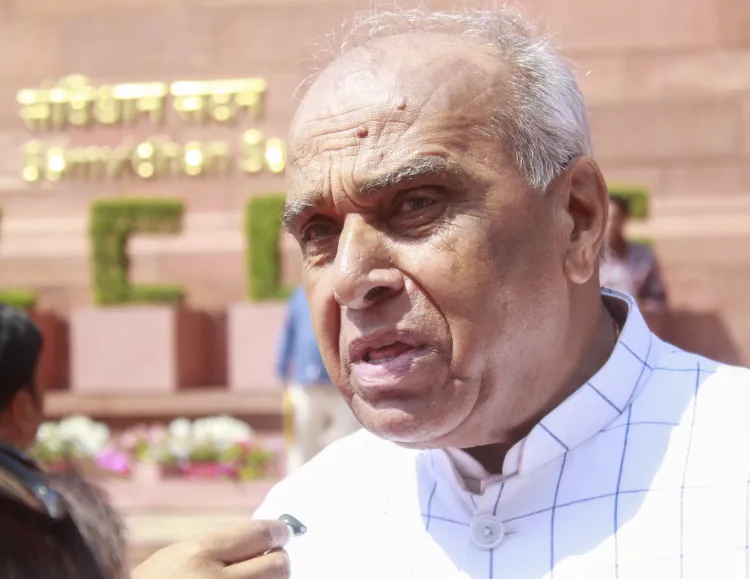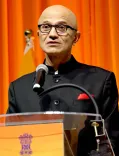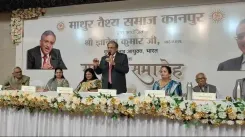Is There Zero Tolerance for Terrorism? Jagdambika Pal on Operation Sindoor

Synopsis
Key Takeaways
- Zero tolerance for terrorism is a key policy of the Indian government.
- India has destroyed significant terrorist base camps in recent military actions.
- Military training for youth is emphasized as crucial for future security.
- Political responses to military actions can be inconsistent.
- India's economic growth supports its military decisiveness.
New Delhi, May 11 (NationPress) In light of escalating tensions between India and Pakistan, following the Pahalgam attack, BJP MP Jagdambika Pal firmly backed the Indian government's resolute actions against cross-border terrorism.
Pal praised the recent military initiatives by India, asserting, “We have eliminated nine of their significant terrorist base camps. Moving forward, we will continue to pursue this matter to its ultimate conclusion. There is zero tolerance for terrorism.” He underscored that India's rise as a global economic powerhouse has equipped it with the capability to respond decisively, despite threats, including Pakistan's nuclear retaliation warnings.
“We understand that war results in devastation and casualties. Yet, in spite of their threats, including the possibility of nuclear conflict, we took action and dismantled their terror bases. I believe this move will be welcomed by all,” Pal stated.
Emphasizing the necessity of preparing India's youth for future security challenges, Pal also highlighted the significance of military training.
“Regardless of how much the world advances, such challenges will persist. Hence, it is crucial that our younger generation in India receives some form of military training,” he remarked.
Shiv Sena MP Milind Deora echoed similar views, commending the government's firm position under Prime Minister Narendra Modi. “First, I would like to commend the Government of India… I also honor the soldiers who sacrificed their lives, along with the courageous personnel from the Indian Air Force, Army, and Navy who stood resolute to defend India at any cost.”
Deora also criticized opposition parties for their inconsistent responses. “Initially, the opposition was advocating for a tougher stance against Pakistan. Yet, when our brave soldiers displayed their valor, those same opposition members called for de-escalation and advocated against war. Thus, the opposition tends to politicize these matters,” he commented.









